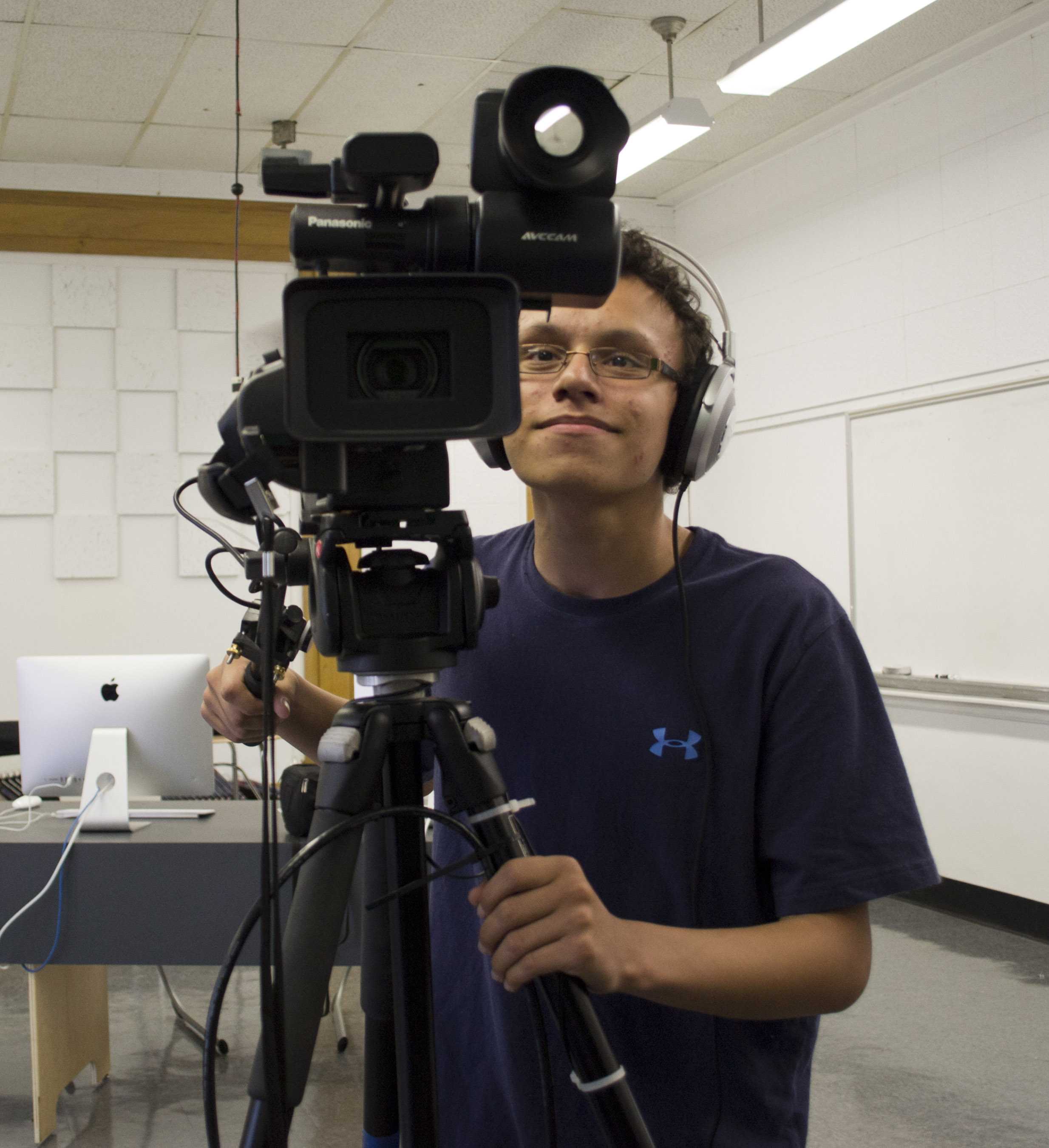This fall, the school introduced a new elective option for students interested in learning how to produce videos and programs to be broadcasted on television.
The TV Production class is taught by art and technology teacher Mr. Peter Koch, who also teaches Digital Video Production and serves as the club adviser for the TV production club, DOtv.
At the moment, the expansion of the program is a rough sketch, but the plan is to create a fully functioning television studio over the next several years.
The studio would be able to not only cover various school events throughout the year, but also to produce its own programs to be broadcasted throughout the school on televisions, such as the ones installed in the lobby and cafeteria.
“Our hope is to get the club to a point where we can consistently release student-produced video content to be broadcasted around the school and on the web. In case you miss your friends volleyball game and you want to see the highlights, we want to be able to fill you in and add to the positive community of Schreiber,” said junior Will Berger.
The school hopes that the programming generated by the TV Production class will also be available online for students to view in their spare time.
“This idea of creating and working to make videos, movies—it was really like an underground operation and kids would post their work on YouTube and some people knew about it some people didn’t,” said Principal Mr. Ira Pernick. “By creating a TV studio we give students a platform to put their work out front, like on stage, as opposed to behind the scenes.”
By collaborating with the Port Washington Education Foundation and the Board of Education, the class was able to fund and acquire all of the equipment and computer programs necessary to launch the TV Production class.
“We still have the old TV studio from the 80s and it’s cool that we’re able to bring it back. I know a lot of people read the school newspaper but I think the TV program will help inform even more people about what’s going on in our school community,” said junior Lya Rothmann.
However, the expansion of this program is by no means a sign that the school’s radio station and newspaper are to be replaced.
Another reason for the expansion of the program is the number of benefits it will bring to students especially interested in pursuing a career in television. Students will be able to experience a variety of concepts associated with the process and the practical skills needed to work at a TV studio.
“I, personally, am not particularly interested in a career in film, but I can honestly say that the TV club will provide anyone who joins with the fundamental skills they will use if they choose to pursue any aspect of television,” said Berger.
Many students choose to go to college for television production, and the class might help them gain an edge over students from other schools who do not have the opportunity to experience the process first hand in high school.
“The members of the club have various levels of experience, ranging from a lot to none at all. Everyone in the club is learning and growing with all of the new additions so anyone who wants to join would not be at any disadvantage,” said Berger. “We are always looking for new members who are interested in writing for TV, reporting, filming, editing, and other general things that go along with broadcasting.
According to many students, modern television technology is a welcome addition to their schedules.
“I think it is a great way to use technology to our advantage. We are in the 21st century and we should start using the TV studio and TV production program as a means to expand the horizons of students and better inform everyone in school,” said junior Ariel Waldman. “By working with the newspaper we can make sure school events aren’t just publicized in the school, but in the whole town.”
The program is still at an early stage of its development and it will take a lot of effort until a functioning TV studio is completed. Both students and faculty members are still working on the basics of generating programming for television.
As the class and ideas for the program’s expansion are relatively new, it is difficult to determine what the finished program will encompass.
“We know so little that we don’t know what we don’t know,” said Mr. Pernick. “Part of the process is figuring out what our next steps are.”

